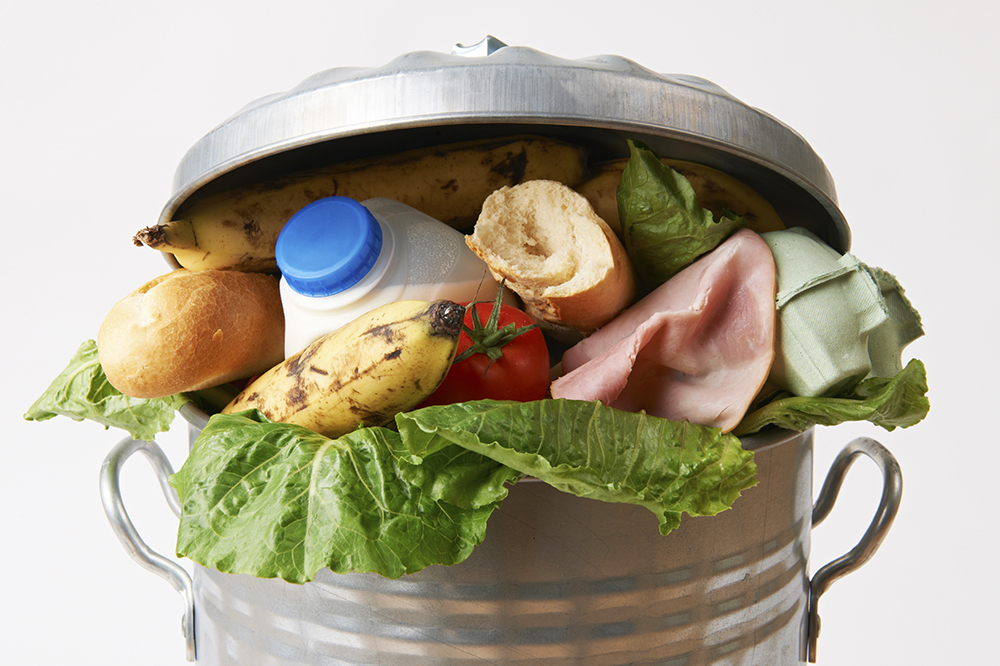
Exiting the dreaded dining hall, you nonchalantly toss a half-eaten slice of pizza and your untouched salad into a trashcan overflowing with uneaten food. On your way to class, you meet a breakfast sandwich with only a single bite out of it lying on the sidewalk. At work, you watch co-workers negligently throw away the unused food at the end of the night, even though it’s still suitable for consumption.
Wasting food isn’t just a problem that affects the Drexel population though; it is a crisis that impacts the entire world. Forty percent of food in the United States goes uneaten, yet we have become accustomed to wasting food and ignore this prominent dilemma.
We are all guilty of wasting food.
Grocery stores purposely overbuy just to make their shelves look full and tend to sell only the food that looks aesthetically pleasing. If a strawberry has a bump on it, it gets tossed. If a head of lettuce has a single brown spot, it gets tossed. If a tomato isn’t perfectly round, it gets tossed. Most of this food is edible, but the stores know that meticulous buyers will only purchase something that appears flawless.
Restaurants and other businesses buy these ‘attractive’ products, only to throw most of them away themselves. Even stingy businessmen and women tend to carelessly overbuy, and thus, discard many of their products.
Workers at restaurants and other dining establishments who handle food also operate rather haphazardly. If they drop something on the ground that could easily just be washed off, they will throw it away just because it’s easier.
Consumerism is the biggest contributor to this problem. At the grocery store, shoppers overfill their carts with unnecessary items and when they are able to consume only half of them a week later, they just shrug and throw the leftovers away. Out to eat, they get through only half of their mountain of spaghetti and say no to receiving a to-go box to once again just throw it away.
Most people are too far removed from the process of food production to register food waste as a problem. They don’t think about how long it took to grow that perfect apple that they just hastily threw away. They’ll never understand what that poor cow went through when they take one bite of their burger and decide they don’t want it anymore.
Americans throw away over $165 billion worth of food every year, yet nobody seems to care and the problem is only getting worse. In a country that is overcome with debt and looking for ways to save money, the idea of learning to cherish food to save money never pops up on anyone’s agenda.
In addition to wasting money, wasting food drains resources. Uneaten food is thrown into landfills where it contributes to the methane emissions that pollute our atmosphere.
The idea of food waste becomes even more unfathomable as you think about the number of people in the world who face hunger and starvation. One-ninth of people in the world do not have enough food to sustain them. We are over-producing and wasting, yet 795 million people don’t have access to enough food to keep them properly nourished.
This is a problem that the entire world must address, but the Drexel community can contribute to ameliorating the issue. There are two distinct worlds here: a Drexel student throwing away things they carelessly bought and no longer wanted, and a homeless man digging through the trash to get that untouched sandwich or muffin.
There has to be a better way.
Even though Drexel is a wealthy university, it is just blocks away from poverty. This is one city and we must work to achieve unity in all areas of life.
Drexel should partner with various organizations that aim to feed those who are less fortunate. Getting involved with a local food pantry would not only decrease the amount of food being wasted, but would also improve the lives of those who are suffering so close to us.
On the individual level, let’s learn to appreciate food. Just because there is a lot of it, it doesn’t make it any less imperative. Buy produce from local farmers’ markets and choose an unaesthetic ear of corn. Don’t overbuy at the grocery store just because something looks good in the moment; meticulously plan what you will need and eat any leftovers you might have. Most of all, be grateful and don’t forget about your hungry neighbors.
Though amends on Drexel and its students’ parts will not fix the food waste catastrophe, we as a society will get one step closer to overcoming it. This is truly an outrage and as a notoriously progressive university, let’s get on it.


